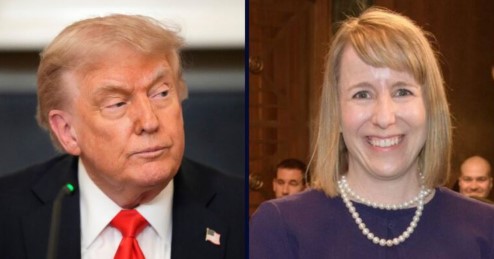A federal judge demands clarity from Homeland Security after court documents reveal the U.S. retains control over detainees sent to El Salvador, raising questions about the legality of recent deportations.
“Key Admission” Triggers Judicial Oversight
July 09, 2025: During litigation over the deportation of Venezuelan migrants to El Salvador, court documents revealed that the Salvadoran government informed UN investigators that legal jurisdiction over those detainees in the CECOT prison remains “exclusively with the competent foreign authorities.” In other words, the U.S. government acknowledged it still retains legal responsibility for them.
U.S. District Judge Stephanie Gallagher flagged this contradiction: if the U.S. maintains responsibility, can it claim that diplomacy alone is required to bring them back? To clarify, she has ordered DHS to explain within one week why it previously stated that only “diplomatic discussions” could facilitate a return.
Broader Context: Deportations & Legal Conflict
The ruling builds on recent developments surrounding mass deportations under the Alien Enemies Act, under which several Venezuelan nationals and Kilmar Abrego García—a Salvadoran—were mistakenly sent to El Salvador, despite active U.S. court barriers.
In Kilmar’s case, a federal judge labeled his removal “wholly lawless,” and the Supreme Court ruled the U.S. must “facilitate” his return, though left it unclear whether DHS or the State Department must take direct action.
Why This Matters
Legal leverage: Acknowledging U.S. control over detainees strengthens their argument against deportations and bolsters court authority to question DHS claims.
Diplomatic vs. legal responsibility: The judge’s order challenges the government’s reliance on diplomacy. If the U.S. holds responsibility, is diplomacy the only path—or is DHS required to take direct measures?
Precedent for future deportations: This ruling could reshape how DHS handles international deportations, emphasizing legal compliance over executive discretion—even in national security scenarios.
What to Watch Next
DHS’s response: Will they concede or defend their prior position?
Impact on ongoing deportation cases: The judge’s clarification could influence matters like Abrego’s case and hundreds of Venezuelans in similar situations.
Balance of power: The order underscores the judiciary’s role in overseeing immigration actions that cross borders—tracking how much control and accountability the U.S. government holds abroad.
This latest judicial intervention puts DHS under scrutiny, raises the stakes for deportation policy, and highlights the complex intersection of legal oversight and international diplomacy.
Published by HOLR Magazine


